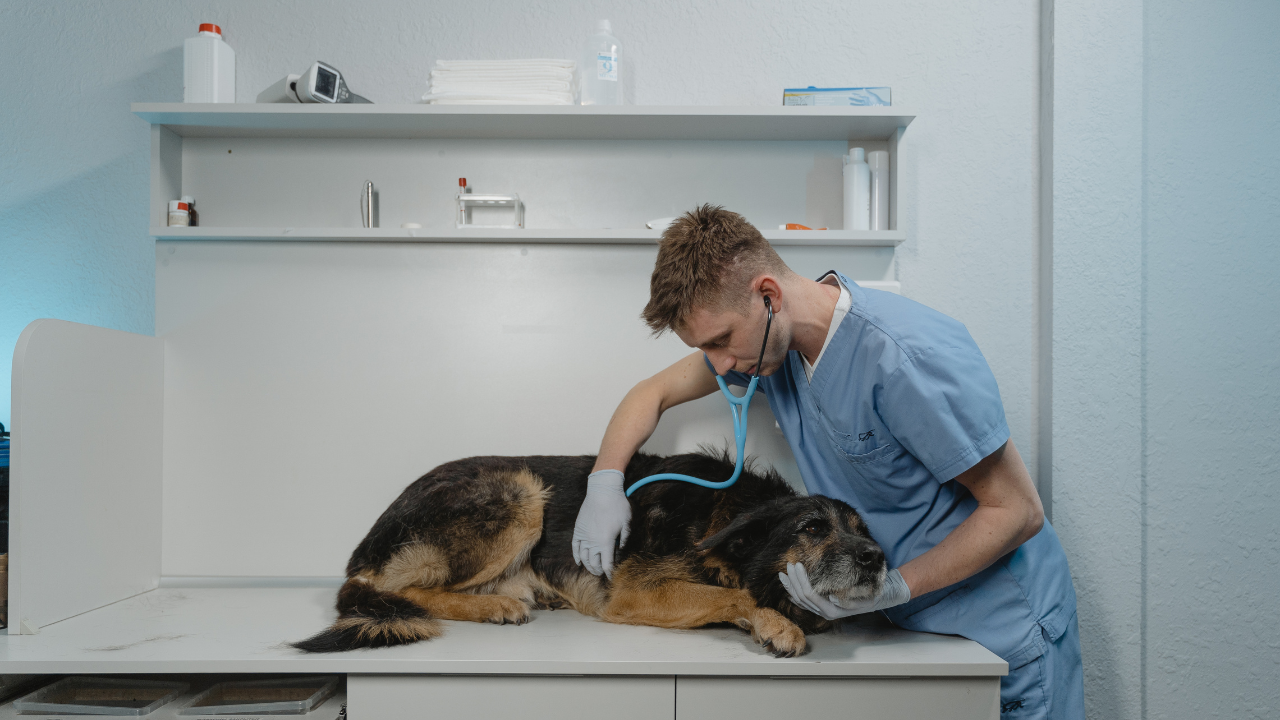When it comes to the health and well-being of our furry companions, one condition that can be alarming is fluid accumulation in the abdomen, also known as ascites. This buildup of fluid can indicate a variety of underlying issues, some serious and life-threatening. In this article, we will explore the signs that dog owners should watch for, the causes behind abdominal fluid accumulation, available treatment options, and what the prognosis may look like for affected dogs.
What is Ascites?
Ascites refers to the abnormal accumulation of fluid in a dog’s abdominal cavity. The condition can develop gradually or suddenly and is typically a sign of an underlying medical problem that requires attention. While the fluid itself is not harmful, its presence can cause discomfort, pain, and pressure on other organs, leading to further complications if left untreated.
Signs of Fluid in the Abdomen of Dogs
Recognizing the signs of fluid buildup in the abdomen can be challenging, as they may resemble symptoms of other health issues. Here are some of the most common signs that your dog may be suffering from ascites:
- Lethargy
- Anorexia
- Laboured breathing
- Rapid shallow breathing
- Visibly distended abdomen
- Vomiting
- Restlessness
- Painful abdomen
- Coughing
In most cases all of these signs are present in dogs with late stage ascites. Early signs may not include complete anorexia, visible abdominal distension and laboured breathing.
How is the Presence of Fluid in the Abdomen of Dogs Diagnosed?
The first sign of ascites in dogs is a distended abdomen. If your dog is showing any of the signs of fluid accumulation in the abdomen, such as swelling or difficulty breathing, you should contact your veterinarian immediately. The presence of fluid can be easily confirmed through a physical examination, ultrasound, or X-rays.
However, determining the type of fluid in the abdomen requires taking a sample and examining it. At the same time, the veterinarian will recommend a set of tests, including a complete blood count, liver function tests, kidney function tests, and urinalysis to determine the primary cause of the fluid accumulation. If you notice any unusual symptoms, it’s important to consult a dog veterinary doctor near you to ensure a proper diagnosis and timely treatment.
Causes of Ascites in Dogs
Ascites in dogs can result from a variety of underlying health conditions. Some common causes include:
1. Heart Disease
Congestive heart failure is a common cause of ascites in dogs. When the heart is unable to pump blood efficiently, fluid can leak into the abdominal cavity. Conditions like dilated cardiomyopathy or pericardial effusion (fluid around the heart) can contribute to this.
2. Liver Disease
The liver plays a crucial role in regulating fluid in the body. Conditions such as cirrhosis, hepatitis, or liver cancer can impair liver function and lead to fluid accumulation in the abdomen.
3. Kidney Disease
Kidney failure or chronic kidney disease may cause an imbalance in fluid regulation, leading to ascites. This occurs due to improper filtration of blood and retention of fluids.
4. Cancer
Certain cancers, such as lymphoma, abdominal tumors, or mesothelioma, can cause ascites as the tumors grow and press on organs or blood vessels, leading to fluid leakage.
5. Infections
Peritonitis, a bacterial infection in the lining of the abdominal cavity, can lead to fluid accumulation. Infections in the bloodstream or organs (like the liver or kidneys) can also cause ascites.
6. Protein Loss
When dogs lose significant amounts of protein, either through urine (due to kidney disease) or the intestines (due to conditions like inflammatory bowel disease), it can lead to fluid retention and ascites. This condition is known as hypoalbuminemia.
7. Trauma
In some cases, a traumatic injury, such as being hit by a car, can cause internal bleeding or damage to organs, leading to ascites.
Treatment for Ascites in Dogs
Treating ascites depends on the underlying cause of the condition. The aim of treatment is to reduce symptoms and address the root cause of the fluid buildup.
1. Fluid Removal
In some cases, the veterinarian may remove some of the fluid from the dog’s abdomen to relieve pressure on the organs. This procedure, known as paracentesis, provides temporary relief but does not treat the underlying cause of ascites.
2. Surgery
If ascites is caused by trauma, peritonitis, or a bleeding tumor, surgery may be required to stop the source of the fluid leakage.
3. Medications
For cases related to heart disease, liver disease, or kidney disease, long-term medication is often necessary. Diuretics are commonly prescribed to help remove excess fluid from the body. Medications may also be prescribed to manage the underlying cause of ascites, such as drugs to support heart function or antibiotics for infections.
4. Dietary Management
A prescription diet tailored to support organ function, especially in cases of heart, liver, or kidney disease, is often part of the treatment. Diets low in sodium and rich in nutrients help prevent fluid retention and improve overall health.
Can Ascites in Dogs Be Cured?
Since ascites is a secondary condition, the prognosis depends largely on the primary cause. While some cases of ascites, such as those caused by infections or treatable heart conditions, can be managed effectively, other causes, like advanced cancer or severe liver failure, may carry a guarded to poor prognosis.
That being said, some cases of ascites can be managed long-term with the help of medications, surgery, and a specialized diet. Regular veterinary checkups are essential for monitoring the condition and adjusting treatment as needed.
Conclusion
Fluid in the abdomen of dogs, or ascites, is a serious condition that warrants immediate veterinary attention. While the underlying causes can vary from treatable heart and liver conditions to more severe diseases like cancer, early diagnosis and proper treatment are crucial for improving your dog’s quality of life. If your dog shows signs of ascites, seek veterinary care promptly to explore the best treatment options and ensure a better prognosis. A best veterinary hospital in Delhi will be able to diagnose the root cause and provide the appropriate treatments to help your dog recover and maintain their health.



